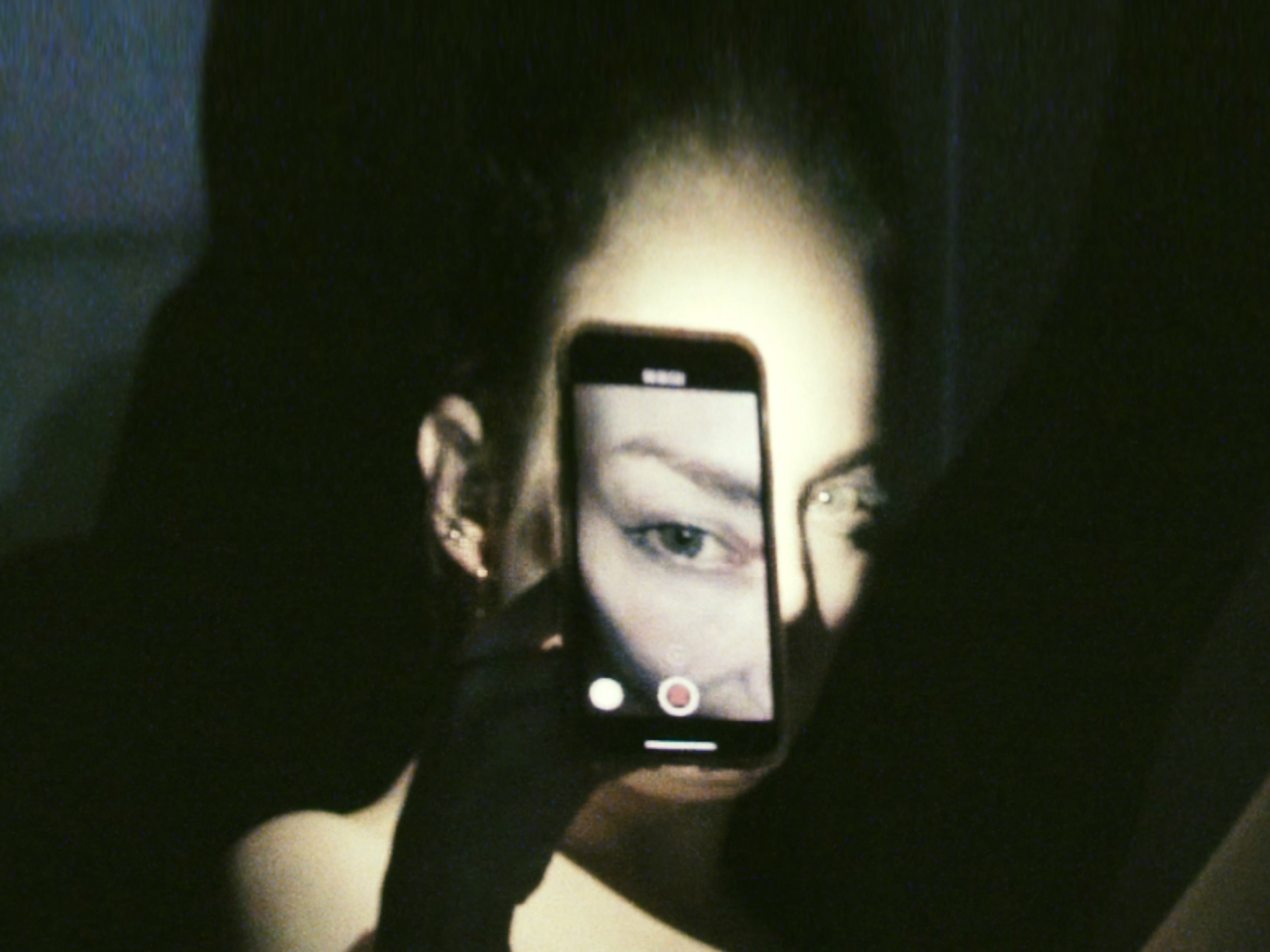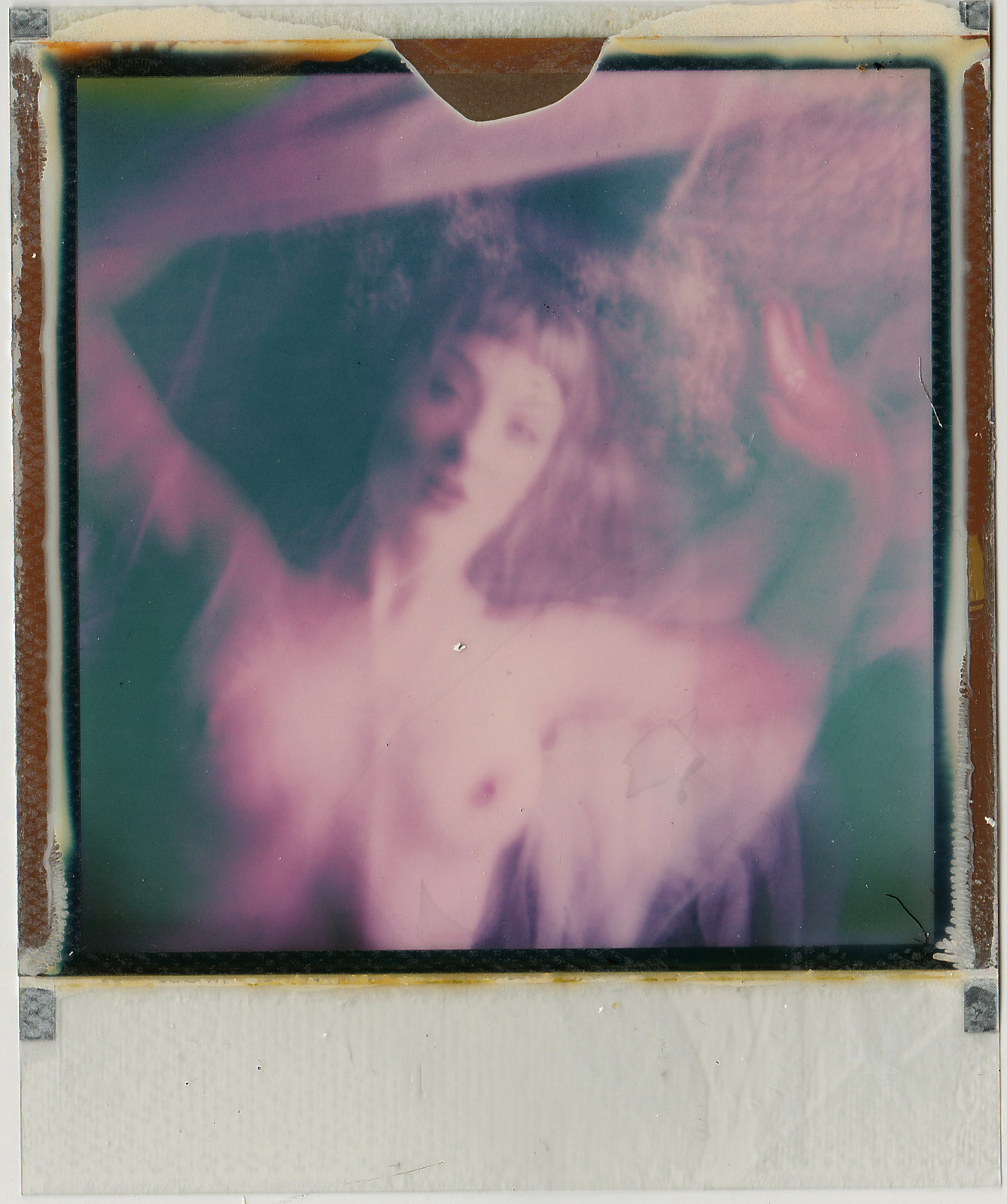With DIY porn project Four Chambers, the adult filmmaker finds the art in sex—and investigates its relationship to society in the process
Porn performers and film directors may occupy separate spaces in our cultural consciousness, but there’s one thing they have in common: a willingness to do whatever it takes to get the shot. This has landed Vex Ashley, whose work hybridizes the two genres, in some unique situations—from covering a plastic-wrapped Barcelona Airbnb in fake blood, to laying an egg in a film adaptation of George Bataille’s Story of the Eye. “Chickens make it look easy, but it’s harder than you would think,” she says over Zoom from her house in Leeds, recalling how she spent 10 minutes squatting naked above a mirror with a blue hen’s egg lodged between her legs, struggling to push it out—at least, until someone reminded her it was Mother’s Day, and she subsequently burst out laughing. “That’s what finally made the egg exit my pussy,” she says. “Thank god the cameras were rolling.”
This kind of anecdote—against all odds—is not the most interesting thing about Ashley’s job. She heads up Four Chambers, a DIY project dedicated to exploring the aesthetic and conceptual potential of porn as a creative medium. “Sexuality is a space where you can really get into how our society functions, how our brains work, how our bodies feel—and I think there are so few mediums that are rooted in our own sensual experience, and allow you to explore that explicitly,” Ashley says, explaining that pivoting from conventional mediums to directing her own porn has given her the freedom create her own blueprint for her creative work—in part, because there wasn’t an existing one to follow.
“Porn has this expansive creative potential—yet people haven’t considered it worthy of the real conceptual exploration afforded to other mediums,” she says. “In our culture, sex is being used in every way, except to explore ideas. It’s used in advertisements, it’s used to sell us things and to manipulate us, but it’s never given the space to exist in its own right. Instead, we use all of these other things—art, literature, film—to speak about sex, without ever actually getting into the reality of it.”
Ashley’s films weave together diverse references—from psychoanalysis, to scientific principles, to art history—to create pornographic films that embody not only the physical act of sex, but its relationship to the world we live in. In Orgone Energy—a film scored by Augustus Mueller of the band Boy Harsher—she meditates on the philosopher Wilhelm Reich’s controversial ideas about the nature of God and sexuality, including the theory that a powerful bioelectrical sexual life force could be harnessed with the use of a device, the Orgone Accumulator. So she built a machine—“part science experiment, part esoteric fuck machine, part reverse glory hole”—and fucked inside of it.
In another series, Recursion, Ashley takes on the landscape of surveillance capitalism—one in which we “record, broadcast, and replicate our images on an unprecedented scale”—interrogating how the dynamics discussed in John Berger’s seminal book Ways of Seeing are “either subverted or preserved in a modern, digital world.” Filmed from four different angles, and via the iPhone cameras of its participants, the resulting orgy is captured through a multiplicity of perspectives. “The way they reacted to being performer and pornographer (or the person seeing and the thing that’s seen) was really different,” Ashley reflects in a written accompaniment to the piece, explaining that, while some performers focused on filming themselves, others concentrated on getting the “action” shot, which wasn’t always what you’d expect. “It’s impossible to tell if it’s their interpretation of what they thought we would want them to film, or what was actually interesting to them,” she writes, concluding that, sometimes, it’s impossible to create anything without considering your viewer.
Across her films, Ashley aims to “convey the atmosphere of fucking,” versus the explicit depictions of sex often found in mainstream porn—which tend to be both graphic and surprisingly sexless, in part because the algorithm on mainstream tube sites privilege only what is immediately attention-grabbing. In contrast, Ashley wants to cultivate an experience for the viewer: gradually building up an intensity that’s akin to real-life sex—which sometimes means showing less of it. “I’m always like, If someone wants to jerk off to this, they’re gonna have to work really fucking hard,” Ashley says with a laugh. “Porn doesn’t necessarily have to be about functional, easy masturbation. Of course, we all need that sometimes—but because we only treat it as a product for instant gratification, we don’t get to explore the mess and the meaning of it as much as we would if we were talking about a different genre of media.”
“In our culture, sex is being used in every way, except to explore ideas… Instead, we use all of these other things—art, literature, film—to speak about sex, without ever actually getting into the reality of it.”
Sometimes, a conceptual mess is best articulated by a physical one, which posed a challenge for Ashley when, in 2016, she was faced with new UK legislation that restricted the use of footage showing bodily fluids on-screen, as well as the portrayal of “nonconventional” sex acts—things like fisting, impact play, female ejaculation, and scenes involving menstruation or urination. “That legislation was basically homogenizing the kind of porn you would see online—and a lot of the acts being targeted were the ones associated with queer sex and non-heteronormative sexual encounters. It was essentially saying, You can just have the nice, normal kind of sex.”
In response, Ashley created her series Forged Obscenities: films in which fake blood and piss intermingle with their real-life counterparts, creating a caricature of obscenity. It’s a commentary on the symbolic value of images in a culture where pleasure is often more readily persecuted than violence—and our collective ability to identify what should be censored is increasingly skewed by a puritanical society.
“The most interesting part of sex is that it exists right on the line between what we should and shouldn’t do—it’s either considered empowering or dehumanizing,” she muses. “It has the power to unseat us, to completely eviscerate our sense of self or the way we’d like to be seen by society—we can be demolished by desire because it bypasses the part of your brain that is polite, that is thinking, that is cerebral. It really gets into your guts and heart and your pumping blood, and captivates us in a way we can’t understand.”
In Ashley’s own life, sex has always been a source of fascination. “When you’re young—especially if you’re a young woman—you are acutely aware of the power that sex has. And as you come into your sexuality, you realize very quickly that it is complicated, and that it underpins lots of power dynamics you experience in society,” she says. Her own early explorations took place online—not on Pornhub, but on Literotica, a site she describes as “infinitely more fucked-up and subversive” in its offerings. It’s not that she was particularly into tentacle porn, or really anything in particular: “I just wanted to see what people were writing about—what people found sexy, and why,” she explains. “For me, exploring my sexuality on the internet allowed me to observe, from a safe distance, what people were doing with sex.”
Ashley is quick to state that, while her work occupies a uniquely artistic position within the current adult film ecosystem, “there is no good or bad kind of porn.” It’s all subjective, she says, “and every piece of media that is created has some worth, or something interesting it can teach us.” At the same time, Ashley acknowledges that keeping the project small and DIY has given her the freedom to explore the medium’s potential.
Now, there is a rising movement around ethically-made, independent porn catered toward the female gaze—but people can’t seem to agree on what that should look like. “There’s this idea that ‘porn for women’ should be, like, fluffy little Hallmark moments from perfume adverts, or a drone shot on the beach,” Ashley says with a laugh. “But there’s a reason why, sometimes, it’s the thing we are not meant to want that draws us in.”
There is a particular alchemy to the act of filming sex, requiring a profound degree of trust and intimacy among performers and pornographers. When people get it right, there is a “strange magic” that emerges over the course of a shoot—a moment when the pomp and pretense of polite society has been lifted, and people are free to connect outside of its confines. “You feel really, deeply close to people after you’ve done this very vulnerable thing together. It opens up the door for you to connect in a different way,” Ashley says.
This is what keeps her invested in expanding the definition of what porn can be, some 10 years after she founded Four Chambers. For Ashley, challenging herself to experience love and intimacy outside society’s prescriptive model for it is a spiritual pursuit—one that has enriched her understanding of herself, those around her, and the society we live in. “Sex has the ability to transport us outside of ourselves—and for me, that’s what it means to feel the divine, and to relish in the beauty of the fact that I get to exist in this world, in a body that’s all nerve endings and blood vessels and receptors for sensation,” she says. “The way we, as a culture, think about sex doesn’t even begin to scratch the surface of how expansive and interesting and fucked-up and beautiful and messy our sexuality is, and what it can mean.”



























